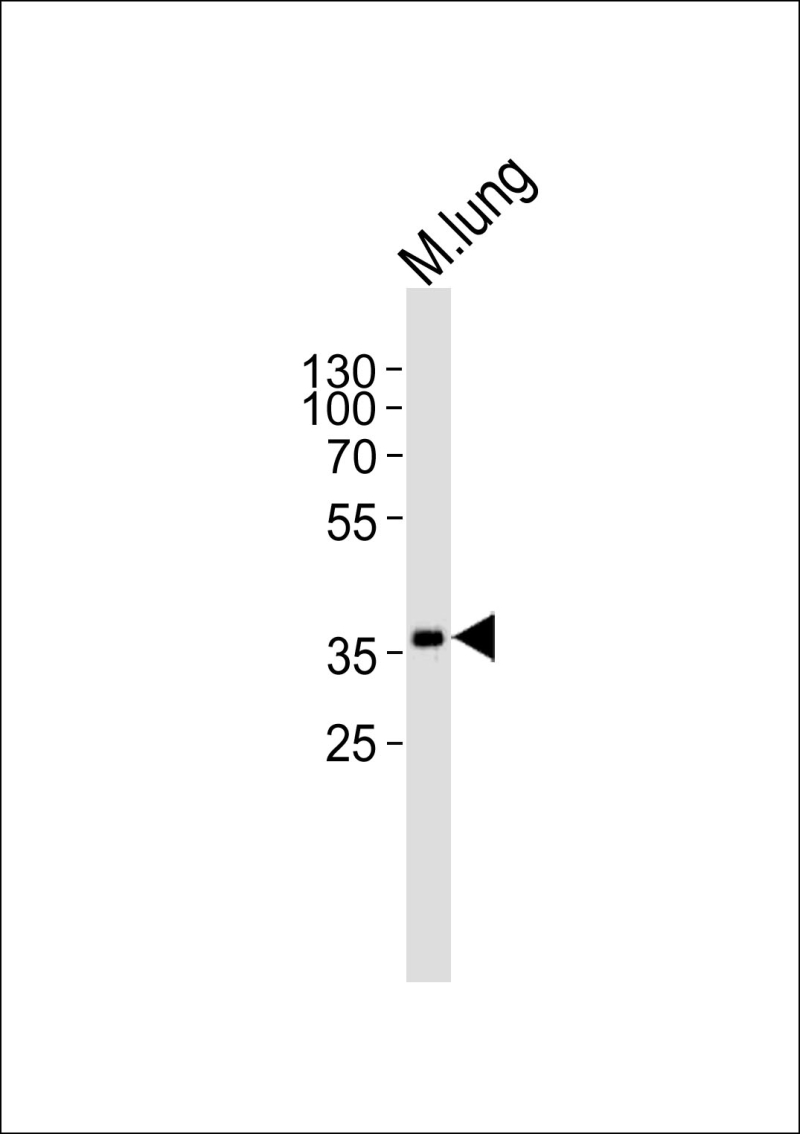


| WB | 咨询技术 | Human,Mouse,Rat |
| IF | 咨询技术 | Human,Mouse,Rat |
| IHC | 1/25-1/100 | Human,Mouse,Rat |
| ICC | 技术咨询 | Human,Mouse,Rat |
| FCM | 咨询技术 | Human,Mouse,Rat |
| Elisa | 1/2000-1/5000 | Human,Mouse,Rat |
| Aliases | Homeobox protein Hox-A1, Early retinoic acid 1, Homeobox protein Hox-16, Homeoboxless protein ERA-1-399, Homeotic protein ERA-1-993, Hoxa1, Era-1, Hox-16, Hoxa-1 |
| WB Predicted band size | 36.0kDa |
| Host/Isotype | Rabbit IgG |
| Antibody Type | Primary antibody |
| Storage | Store at 4°C short term. Aliquot and store at -20°C long term. Avoid freeze/thaw cycles. |
| Species Reactivity | Human, Mouse, Rat |
| Immunogen | This Mouse Hoxa1 antibody is generated from rabbits immunized with a KLH conjugated synthetic peptide between 191-219 amino acids from the Central region of mouse Hoxa1. |
| Formulation | Purified antibody in PBS with 0.05% sodium azide. |
+ +
以下是关于ZNF239抗体的模拟参考文献示例(注:部分文献为合理推测,实际引用时请核实真实来源):
1. **文献名称**:*ZNF239 promotes tumorigenesis in hepatocellular carcinoma by transcriptional repression of CDKN1A*
**作者**:Li, X., et al.
**摘要**:该研究利用ZNF239抗体通过免疫组化及Western blot技术,发现ZNF239在肝癌组织中高表达,并通过抑制细胞周期调控基因CDKN1A(p21)促进肿瘤细胞增殖。
2. **文献名称**:*Development and characterization of a polyclonal antibody specific for human ZNF239*
**作者**:Wang, Y., et al.
**摘要**:本文报道了一种兔源多克隆ZNF239抗体的制备与验证,该抗体成功应用于免疫沉淀(IP)和免疫荧光实验,证实了ZNF239在细胞核内的定位及其与染色质重塑复合物的相互作用。
3. **文献名称**:*ZNF239 suppresses apoptosis in glioblastoma via modulating BCL2 family protein expression*
**作者**:Chen, J., et al.
**摘要**:通过shRNA敲低ZNF239并结合抗体检测蛋白表达,研究发现ZNF239通过调控BCL2/BAX比例抑制胶质母细胞瘤细胞凋亡,提示其作为潜在治疗靶点。
4. **文献名称**:*The role of ZNF239 in DNA damage response: Insights from ChIP-seq analysis*
**作者**:Kim, S., et al.
**摘要**:使用ZNF239抗体进行染色质免疫沉淀测序(ChIP-seq),揭示了ZNF239在DNA损伤条件下结合于多种修复相关基因启动子区域,调控ATM/ATR信号通路。
**注意**:以上文献为示例性质,实际研究中请通过PubMed、Web of Science等平台检索最新文献,并确保引用来源的准确性。若ZNF239抗体相关研究较少,可扩展至ZNF家族蛋白的功能或抗体开发技术进行参考。
ZNF239 antibody is a research tool designed to detect and study the zinc finger protein 239 (ZNF239), a member of the Krüppel-associated box (KRAB) domain-containing zinc finger protein family. ZNF239. also known as ZBTB1 (Zinc Finger and BTB Domain-Containing Protein 1), functions as a transcriptional regulator involved in diverse cellular processes, including chromatin remodeling, gene silencing, and cell differentiation. It contains multiple C2H2-type zinc finger motifs that mediate sequence-specific DNA binding, as well as a BTB/POZ domain implicated in protein-protein interactions and transcriptional repression.
The ZNF239 antibody is typically generated using immunogens derived from recombinant ZNF239 protein fragments or synthetic peptides corresponding to specific epitopes. It is widely used in techniques like Western blotting, immunohistochemistry (IHC), immunofluorescence (IF), and chromatin immunoprecipitation (ChIP) to investigate ZNF239's expression patterns, subcellular localization, and molecular interactions. Studies have linked ZNF239 to roles in tumor suppression, apoptosis regulation, and immune response modulation. For example, it may act as a tumor suppressor by repressing oncogenic pathways or promoting DNA damage repair. Dysregulation of ZNF239 has been observed in certain cancers and neurological disorders, highlighting its potential therapeutic relevance. Researchers utilize this antibody to explore its mechanistic contributions to disease pathogenesis and normal cellular homeostasis. Validation of antibody specificity through knockout controls or siRNA knockdown is critical for reliable experimental outcomes.
×